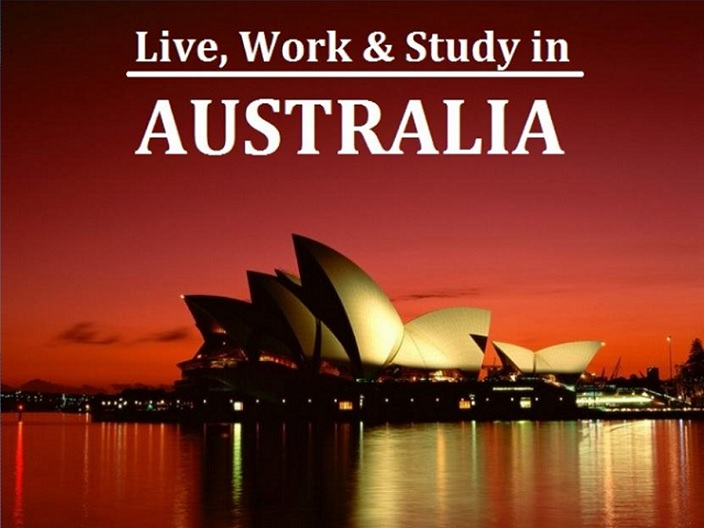
Australia is the only country that shares no land borders with any other country. It is both a country and continent. The nation is popular for kangaroos and there is a lot more to Australia to desire. Australia covers a land mass area of 7.69 million square kilometers, making it the 6th largest country in the world with a political population of more than 23 million folks.
Of recent, Australia has attracted global attention in education acquisition as a result of the budget the government earmarks for international students yearly, which is a cardinal reason many students from around the globe decide to study there. In this article, we shall unveil the cost of studying in Australia, admission policy and requirements, the cost of living and other related matters.
Cost of Studying in Australia
Study Expenses and Scholarships
The currency used in Australia is the Australian Dollar (AUD), note this.
If you intend acquiring university education in Australia, one of your major concerns will be how much it’s going to cost you. The major advantage of studying in this country is that, her government offers a lot of money to intercontinental scholars – from $500 million AUD per year. Many scholarships, grants, and bursaries in hundreds exist that you can apply for to help you study in Australia.
The Australian government supports the educational system to a very high extent and you can be sure about experiencing a wonderful academic life in Australia. The availability of various scholarships is another additional advantage of studying in Australia, there are many scholarships one may pick from and international students can get unhindered access to many of these scholarship opportunities.
Because lots of students from around the globe apply to study in Australia yearly, applying for scholarships in is very competitive. If you are planning to self-sponsor your studies, you must be aware of the charges associated with studying and living in this part of the globe. The budget for education in Australia is reliant on the type and duration of ones’ studies as is the case with almost all other countries.
One can spend as much as $10,000 to $33,000 for undergraduate Bachelor Degrees in a year. Higher costs are associated with studying in private universities. Public institutions generally cost less.
A Graduate Master’s Degree approximately costs from $20,000 to $37,000 per year. The cost for a Doctoral Degree on an average ranges from $14,000 to $37,000. The higher costs here are attributed to private education.
Living Expenses
The Department of Immigration and Border Protection requires $18,610 as the minimum cost of living to release a student visa. Generally, your living expenses in Australia will rely solely on which region you plan to stay in. Urbanized areas have higher costs for accommodation. The type of accommodation also matters.
Aside from accommodation, your weekly expenses will most likely include;
Groceries or eating out ($80 to $200)
Gas and electricity ($60 to $100)
Phone and internet ($20 to $50)
Public transport ($10 to $50) and
Entertainment ($50 to $100).
Working while Studying
If you wish to recover part of your expenses by working while you are studying in Australia, you can check with the right government office first, as different visas have different provisions on this.
Read also: Study in Australia: Tuition Fees, Cost of Living and List of Top Universities
Admission Requirements
To study in Australia, there is a minimum need you must meet to meet your dream of studying there.
English language requirements
English is the lingua franca of the country; therefore, lectures and studies are taken in English language. In selected cases, you may be required to make available results of an English language test. Note that the English language proficiency demanded by an institution may be different from the one demanded for your student visa application. You can carefully go through students’ visa information on the Department of Immigration and Border Protection (DIBP) website as well as the institution website for English language requirements.
Academic requirements
Academic requirements will differ depending on the level of education you want to undertake including evidence of English language skills you need to study in Australia. Institutions can have varying entry requirements.
Here are certain general regulations on entry requirements for the various levels of study:
Good Use of English – Good use of English is important because all courses are taken in English.
Schools – different schools have varying entry requirements dependent on the state or place you will be studying in. Your academic ability will be evaluated and proof of your academic performance is vital.
Higher Education Undergraduate – Gaining entrance into an Australian scholar course, you possess an Australian Senior Secondary Certificate of Education (Year 12), or the overseas equal. Some undergraduate courses may also have specific pre-requisite subjects.
Higher Education Postgraduate – in addition to the satisfactory completion of a degree program at an undergraduate level, your institution may consider research ability or relevant work experience.
List of Universities in Australia
Australian Catholic University
Australian National University
Bond University Gold Coast
Carnegie Mellon University
Central Queensland University
Charles Darwin University
Charles Sturt University
Curtin University
Deakin University
Edith Cowan University
Federation University Australia
Flinders University
Griffith University
James Cook University
La Trobe University
Macquarie University
Monash University
Murdoch University
Queensland University of Technology
Royal Melbourne Institute of Technology
Southern Cross University
Swinburne University of Technology
Torrens University Australia
University of Adelaide
The University of Canberra
The University of Divinity
University of Melbourne
University of New England
University of New South Wales
The University of Newcastle
The University of Notre Dame Australia
University of Queensland
University of South Australia
University of Southern Queensland
University of the Sunshine Coast
University of Sydney
University of Tasmania
University of Technology
The University of Western Australia
Western Sydney University
University of Wollongong
Victoria University
You can begin your journey to a bright future if you study in Australia.
Source: http://worldscholarshipforum.com/work-study-tips-work-study-australia/